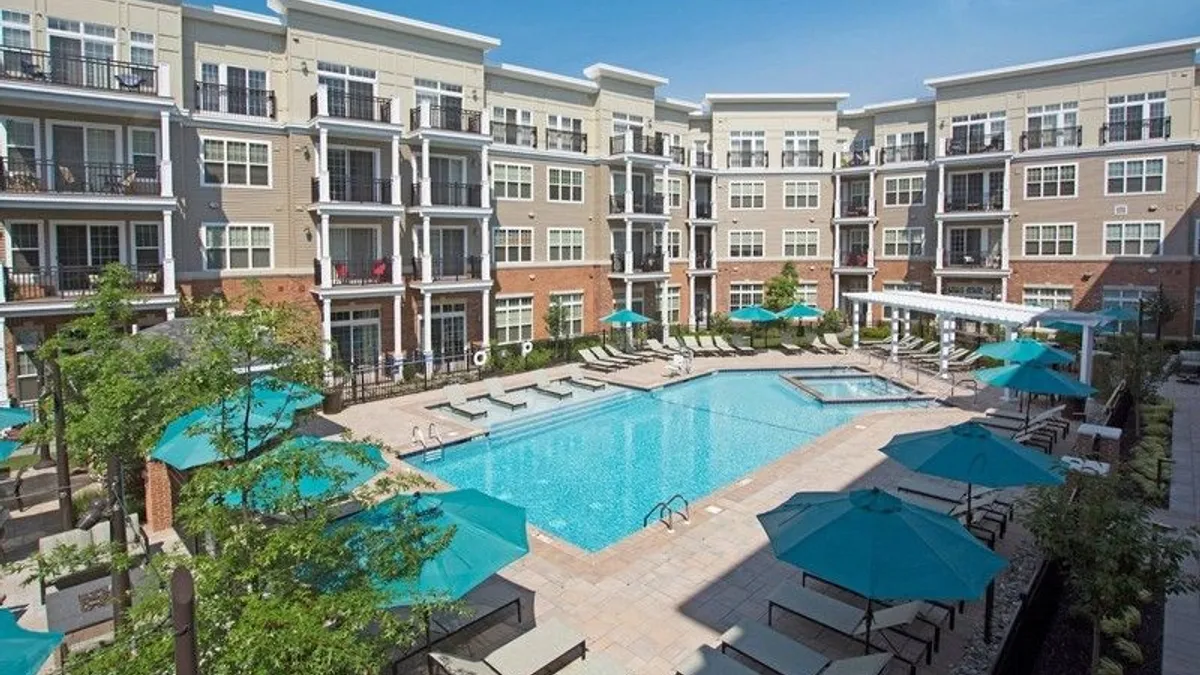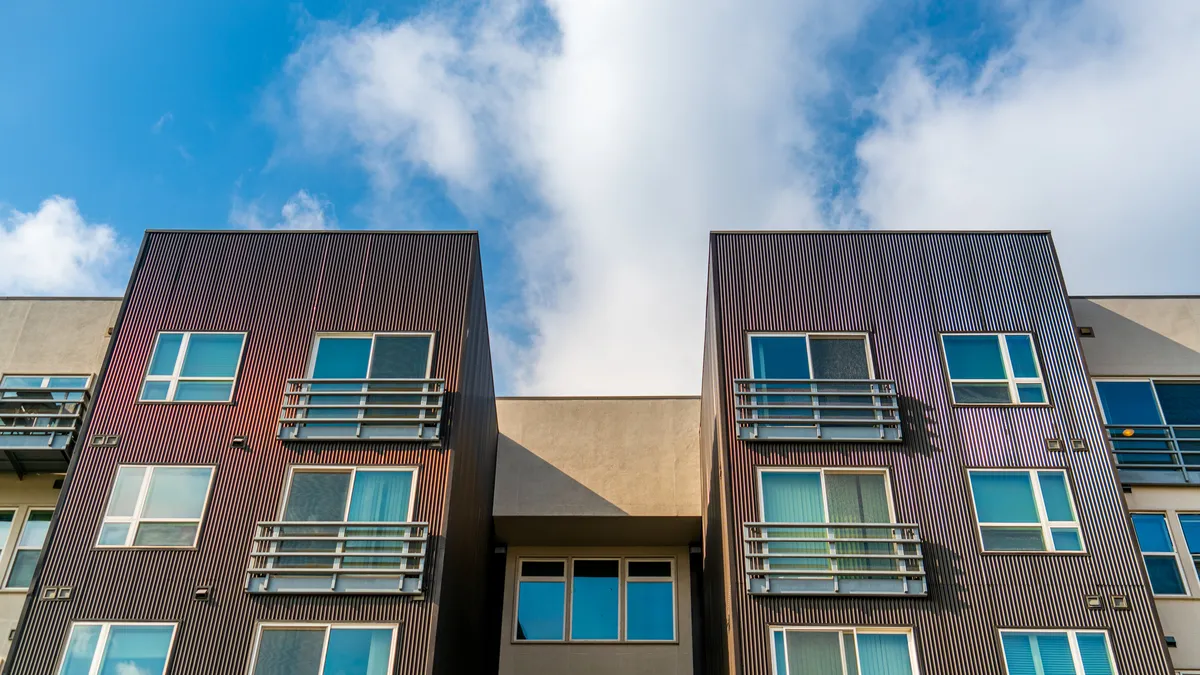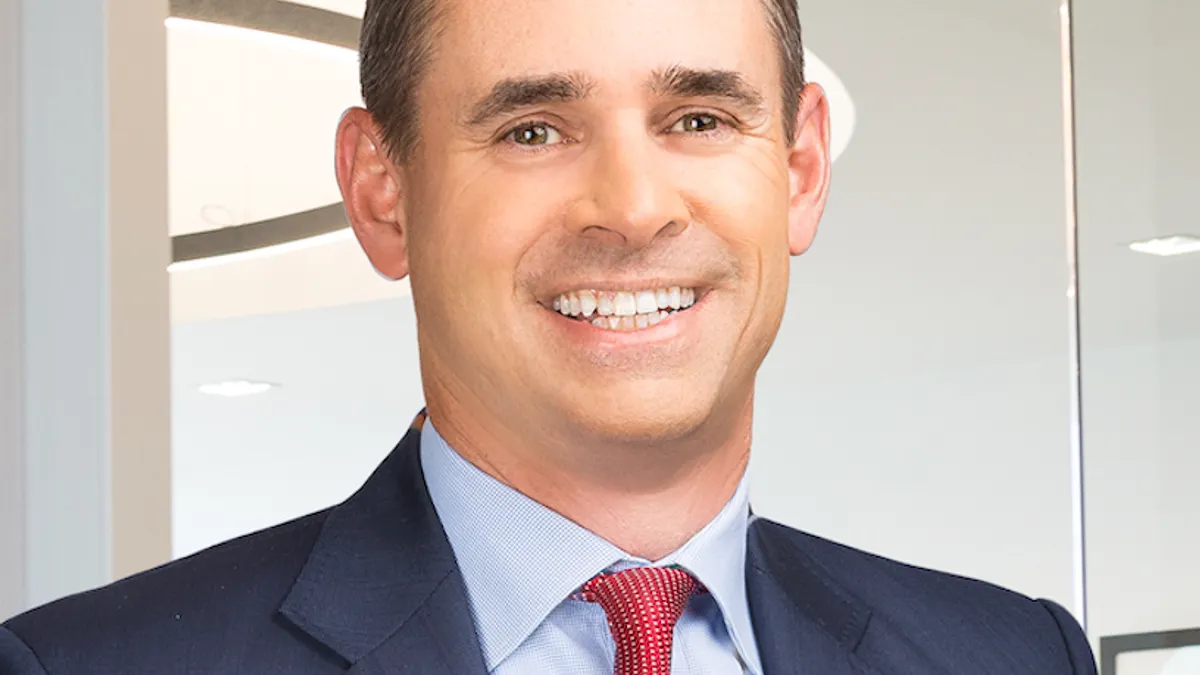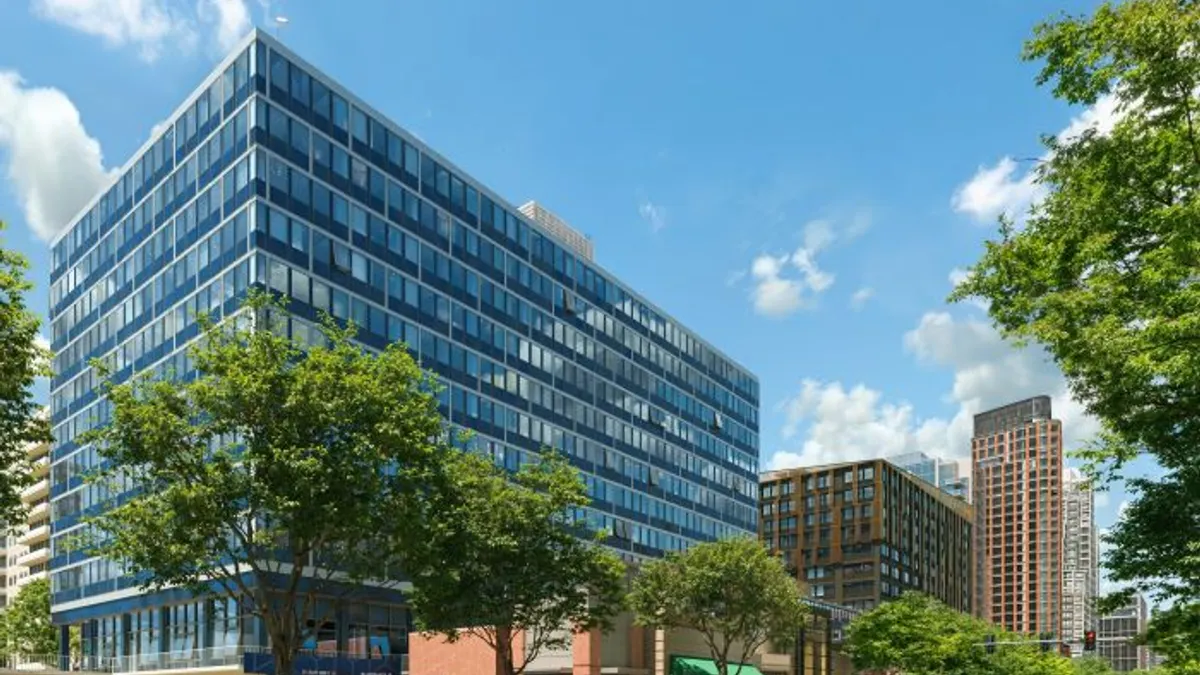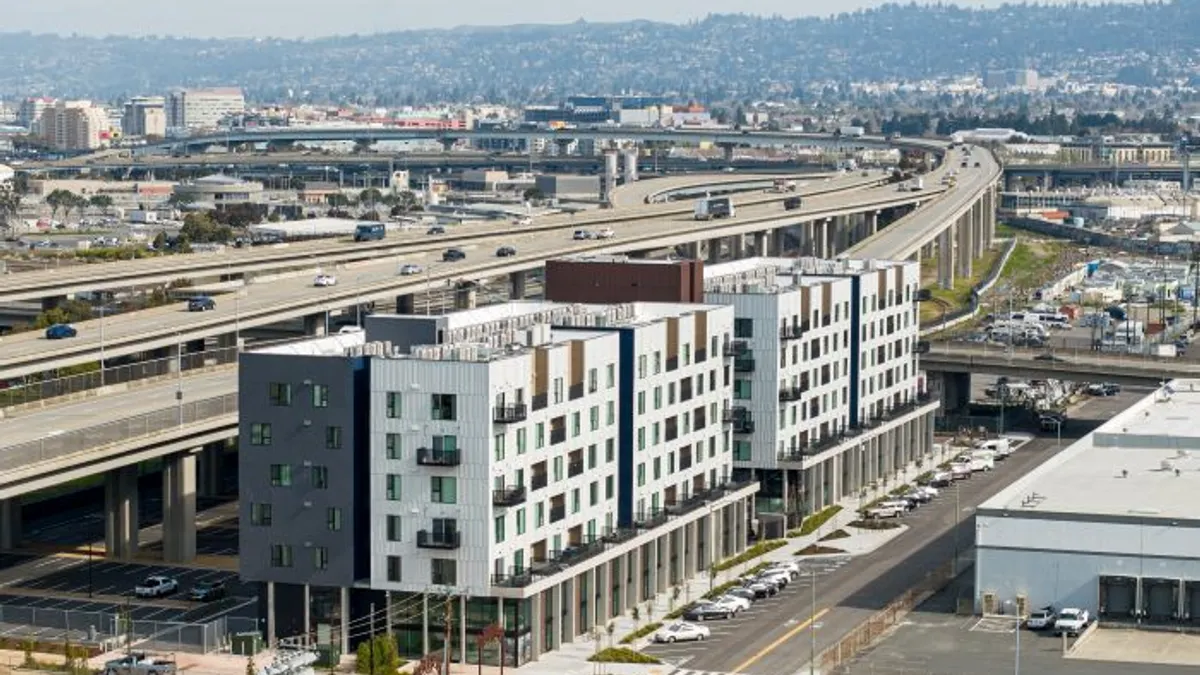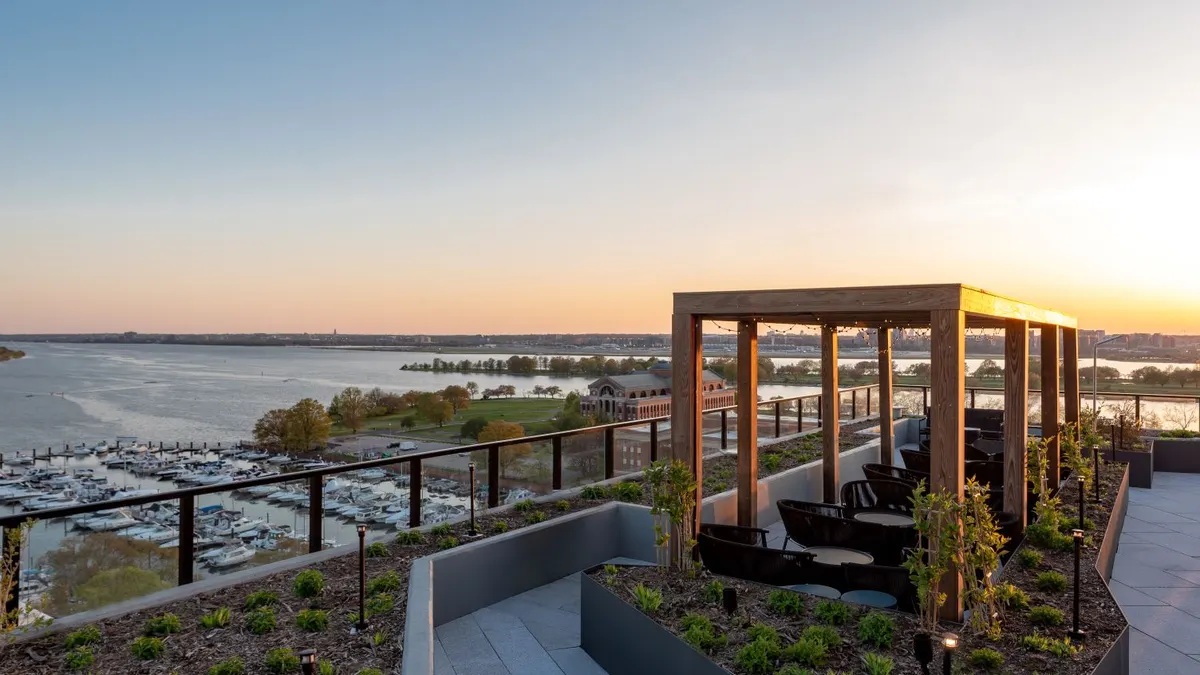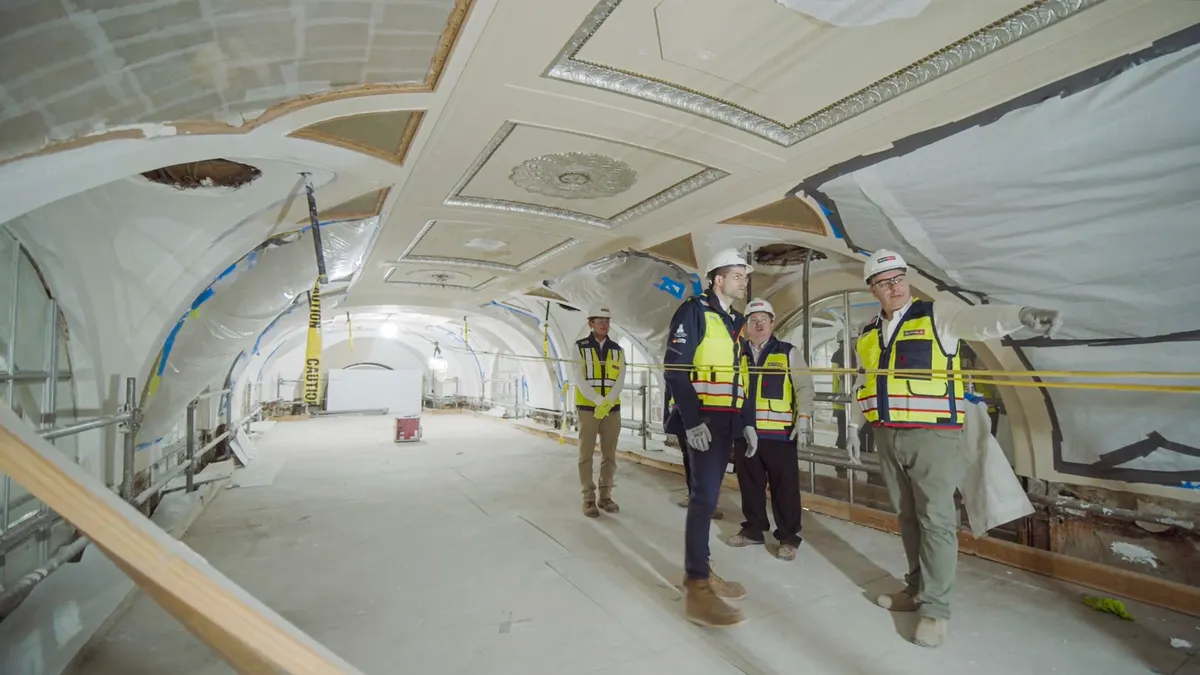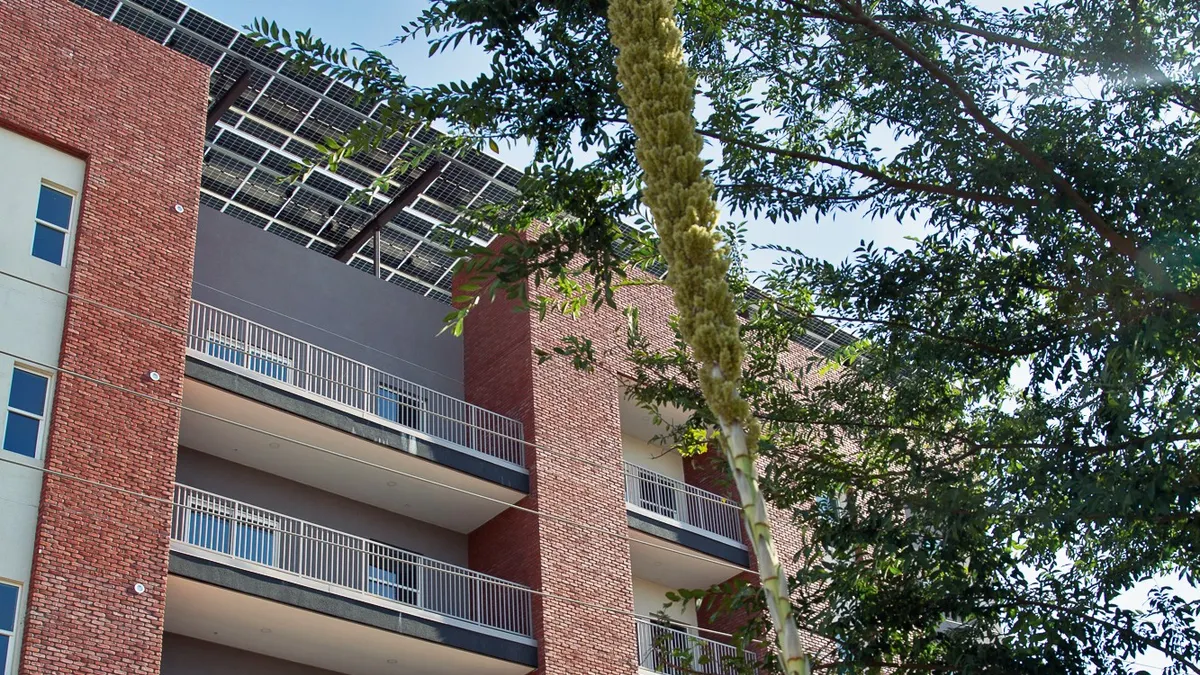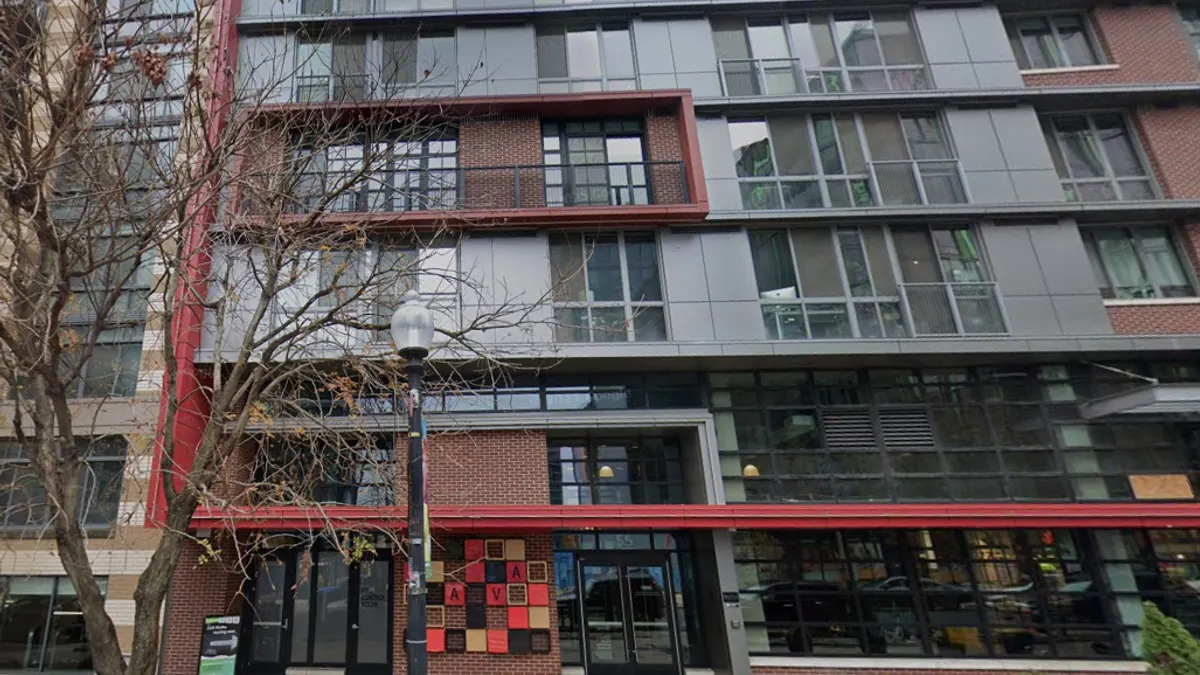In Fairfield, New Jersey-based Woodmont Properties’ portfolio, the average renter falls into two categories.
“We’re their last stop before they decide to buy a home or the first stop after they sell their home because they want to scale back,” Louis DeVos, vice president of property management at the company, told Multifamily Dive. “They come to us because they still want a very high-end product, and they want everything taken care of from a maintenance and customer service standpoint.”
For Woodmont, which has roughly 3,000 units and another 1,000 in the pipeline in Northern and Central New Jersey and the Lehigh Valley in Pennsylvania, interest rate fluctuations matter. When borrowing costs are low, move-outs rise for renters ready to purchase a home.
But now that rates have risen, some empty nesters may not be ready to lease because they can’t sell their current homes.
“So many households — people who have refinanced over time — have low rates,” DeVos said. “It’s going to take a while, if it ever happens, to get an interest rate that’s sub-4% or 3.5%. Some people may never sell because they don't want to go and buy another home.”
But others may decide to cash out, even if their home isn’t worth what it was two years ago. “If they’re okay with selling — prices have sort of stagnated in the area — they will,” De Vos said. “And, hopefully, they will come to us as they have in the past.”
Interest rates aren’t the only things on DeVos’ mind in 2024. Here, he talks with Multifamily Dive about the rise of high-end competition, changing renter expectations and the for-sale market.
This interview has been edited for brevity and clarity.
MULTIFAMILY DIVE: As rents soften nationally, how is your portfolio performing?
After COVID, we had, like everybody else, strong rent growth. We're now going back to pre-COVID rent growth. Our occupancy has remained high. We tend to run about 96% or 96.5%. That didn’t dip at all during COVID. It went up slightly post-COVID.
We've been doing well recently, but we noticed more of a focus on value from a prospect standpoint.
Are you seeing new supply in these markets?
That isn't what I'm noticing. I've been in New Jersey since 2005. You're seeing people raise their game in terms of what they're delivering. We've always delivered high-end product, and we're seeing more high-end product being delivered in transit-oriented infill markets, which is where we'd like to be.
We do have competition, more than we've seen before. We are not up in the Gulf Coast area, sort of Jersey City, where a lot more development is scheduled to come. We're a little bit more suburban. So we have less of that competition.
As more high-end product is delivered, do renters’ expectations change?
Really, what I consider to be the new luxury is flexibility. We try to provide a very flexible living experience. We offer multiple-term leases — anything as short as two to three months to much longer. We let people out of those leases based on certain language. But we believe that flexibility is the most important luxury that people want these days.
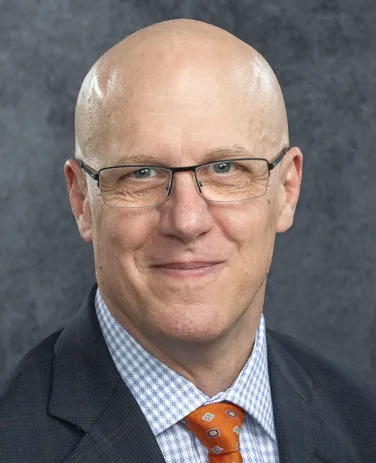
Our average residents are renters by choice. They choose to rent. They could buy a home. They come to us because they still want very high-end and they want everything taken care of from a maintenance and customer service standpoint. So yes, expectations have gone up. But not dramatically. It's more about how flexible we are able to be.
What was driving the uptick in empty nester renters?
People wanted to cash out when they could and their house values were high. Also, we've been developing our apartments to accommodate more empty nesters, which generally means more storage, larger apartments and more amenities. And that's attracted more people to the rental market.
How are interest rates affecting overall rental demand?
I pay attention to the percentage of people who move out for multiple reasons. The first being to buy a home. And when I see that number move more than I would like, it tells me that the housing market is opening up. That's one thing that we take a look at. We know that some people want to move out to buy homes. They can't because interest rates are too high or there are no homes for sale.
So, in 2024, it will be interesting to see what happens with the interest rates coming down, as the Fed has put out there. I don't think we're going to double the amount of people moving out for home purchases. I think it's just going to free up some people to be able to do so.
Click here to sign up to receive multifamily and apartment news like this article in your inbox every weekday.



